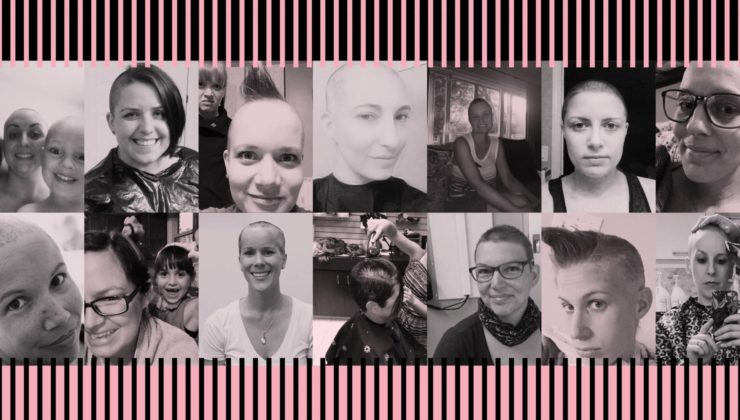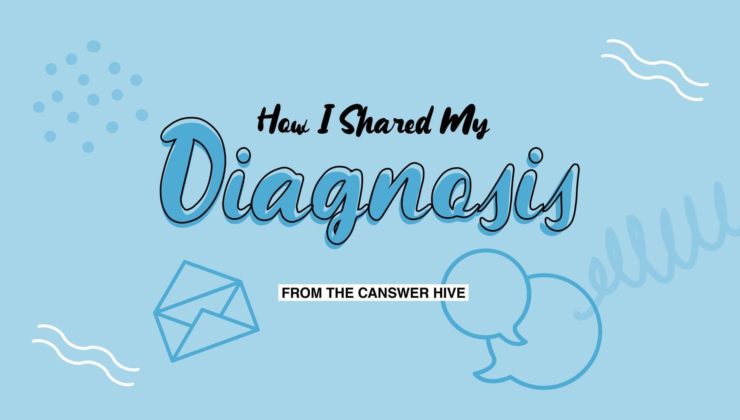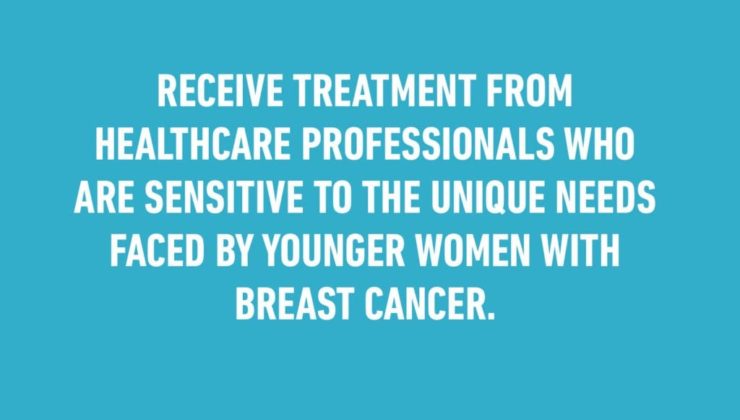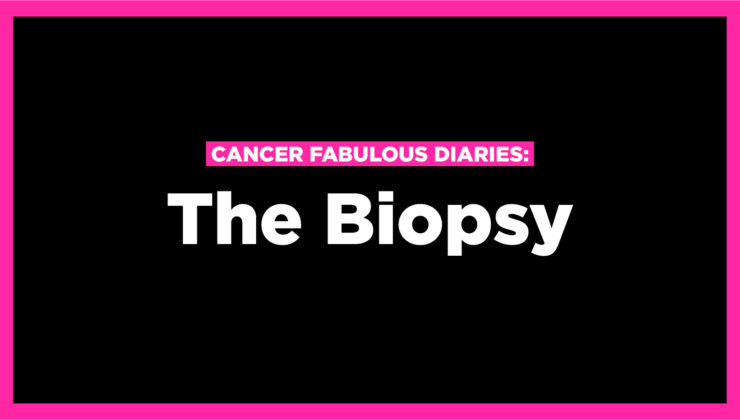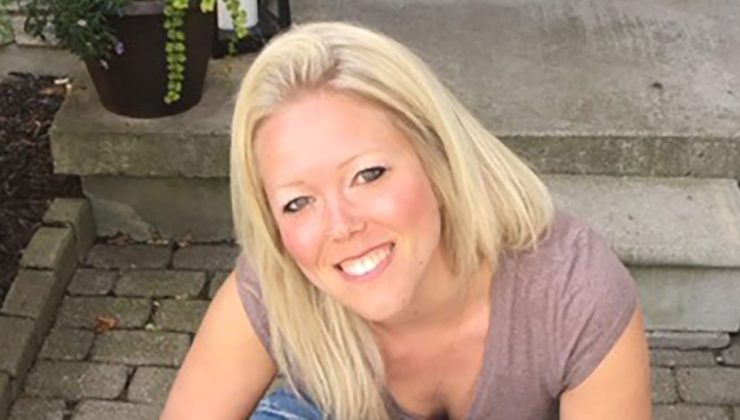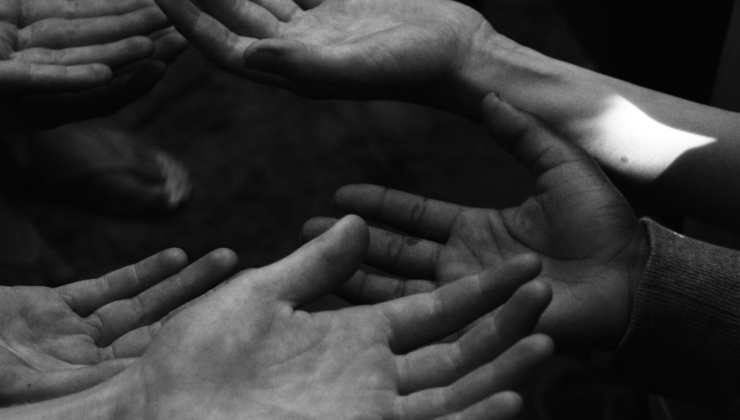Care Priorities
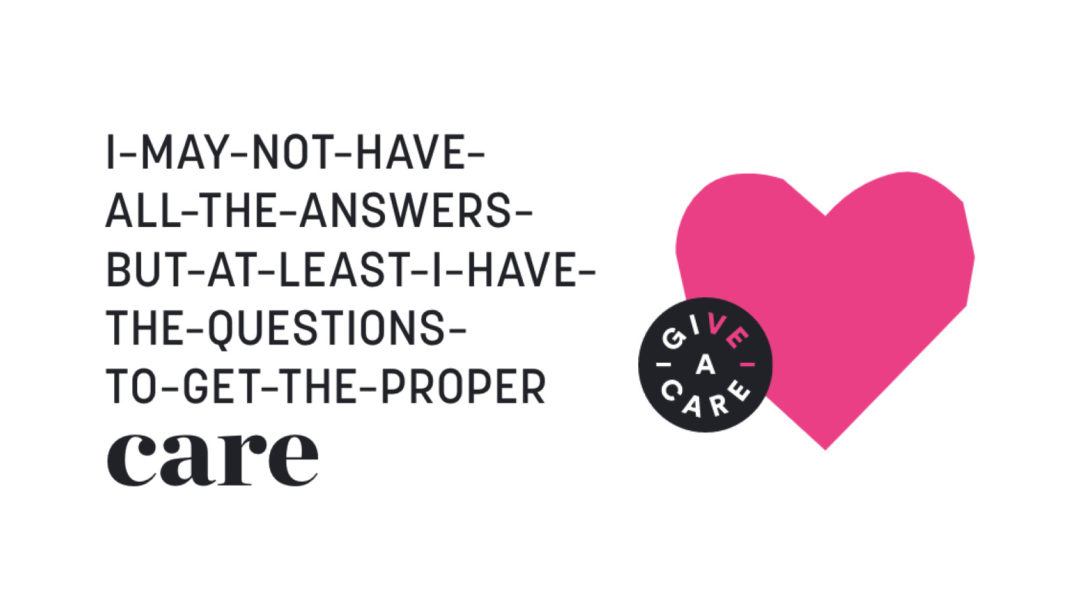
Are you a young person who’s been diagnosed with breast cancer?
Due to your age and life-stage, as a young person with breast cancer, you have unique care needs that differ from older patients. Our research shows that, unfortunately, these needs are not always properly addressed.
We give a care about the needs of young women with breast cancer.
Rethink Breast Cancer’s priorities provide information about key issues you may want to discuss with your healthcare providers involved in your breast cancer treatment and care. They are recommendations on the kind of information and support to which you should be given access as a younger woman with breast cancer.
Care Priorities for young people with breast cancer
As a young person with breast cancer you should:
- Receive treatment and care from healthcare professionals who are sensitive to the unique needs and concerns that you may face as a younger person with breast cancer, no matter what type or stage.
- Have a full family history taken as soon as possible with respect to cancer risk. If appropriate, you should be offered a referral to a genetic specialist for counselling and testing.
- Be told about the risk of menstrual irregularity or early menopause as a result of some treatments, as well as potential impact on bone, sexual and mental health, body weight and image. Where appropriate, you should be given support and resources on coping with the physical and emotional impact of an early menopause or the menopausal side effects of treatment.
- Be given a full explanation during initial treatment planning about the possible impact of treatment on fertility, including support/resources for contraception and pregnancy after treatment. If appropriate, receive options for preserving fertility by a specialist, including information about the chances of success from fertility treatment and the possible impact of delaying breast cancer treatment by the appropriate specialist.
Similarly, be offered specialized counselling if you are diagnosed during pregnancy or within a year of giving birth to help you cope. If you have to be treated with chemotherapy during pregnancy, you should have access to a specialist with experience in this area. - If you have kids, you should be informed about community-based resources to help you with childcare during your treatment and recovery, as well as domestic services and support resources to help other family members cope.
- Have the opportunity to discuss some of the complex life decisions you may be facing in a supportive environment with a skilled counsellor, especially if you are having difficulty coping with making major life decisions sooner than you expected.
- Be fully informed about breast reconstruction options, including the option to opt out altogether. You should also be told about the possible risks and the reality of the look and feel of reconstructed breasts.
- Be asked if you need a referral to discuss the financial impact of your diagnosis. Topics might include employment rights, benefit plans, coping with a loss of income, and the effects on mortgage and insurance.
- Be offered access to supportive care services through palliative care at the time of your metastatic diagnosis. Services include nutrition, pain management, physical and occupational therapy, and psychosocial support.
- Have the opportunity to be connected with other young people who have been diagnosed with breast cancer and be told about long-term sources of support.
Read Rethink’s Care Priorities here!
If you are a healthcare provider, care-giver or someone looking to make change for young women with breast cancer, download the Care Priorities and find out how you can make them available at more healthcare centers across Canada by contacting us at hello@rethinkbreastcancer.com.

